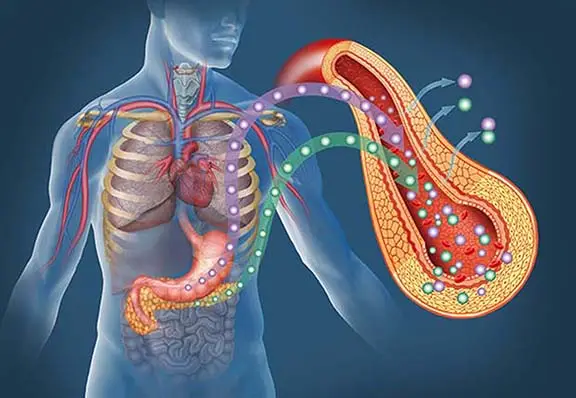
By Joen Lane, Ideal Family Weight Loss & Life Balance Center
Last month we talked about carbohydrates and the effect that specific types of carbs have on your body once you ingest them. There are still many people who believe that it doesn’t really matter what we eat since everything is ultimately turned into glucose for the body to burn. While it is true that the body turns all carbs into glucose, there is a huge difference between the carbs in a pear and the carbs in a cupcake.
No matter what we eat, the hormones insulin and glucagon are the two great equalizers that truly want the human body to be in homeostasis at all times. Homeostasis is the ability of an organism or environment to maintain stability in spite of changes. I won’t try to explain the complexities of each of our body systems and their role in homeostasis. However, your body’s “quarterback” in balancing all of this is your pancreas. This is where the two key hormones do their business. Why should you care about the details of how our bodies digest and utilize foods? Because once we begin to understand the delicate balance that our bodies instinctively want to maintain, it makes the decision to eat pears versus cupcakes so much easier.
When you eat, regardless of what it is, your body begins making decisions without your cognitive knowledge as each of our body systems “talk” to one another autonomically. The brain is the master control system, yet the digestive system is where the “rubber meets the road” and our general health is regulated. The pancreas has more clout when it comes to processing energy. While the pancreas is an organ that we often don’t hear too much about, it is the key to understanding and discovering your best health.
When your blood sugar levels are high, insulin is secreted by the beta cells of the pancreas. So, following a meal that contains mostly carbs with a high glycemic index — meaning they are digested quickly — your blood sugar (glucose) level may skyrocket well past the desired level of 110 mg/dl. This causes glucose to be stored in the muscle tissues and especially in fat cells.
Conversely, when blood sugar levels are low, the glucagon is secreted by the alpha cells of the pancreas. Blood glucose is typically low between meals and during exercise. Glucagon affects many different cells in the body, however, its main function is to cause the liver to release stored energy into the bloodstream. Glucagon also causes the production of glucose by the liver out of building blocks obtained from other nutrients found in the body, such as protein. The production of insulin and glucagon by these pancreatic cells ultimately determines if a person has diabetes or another related problem.
Essentially, insulin and glucagon work together very closely. When insulin increases, glucagon decreases, and vice versa. Insulin promotes storing energy and manufacturing proteins while glucagon promotes the release of stored energy. Our bodies require blood glucose levels to be maintained in a very narrow range. Keeping your blood glucose level in check (i.e., below 110 mg/dl) will cause your body to consistently burn more stored fat. A diet filled with good protein and carbohydrate sources will minimize insulin spikes, increase glucagon, and ultimately promote less fat storage.
Stabilizing blood sugar levels and optimizing fat reduction gets back to what we already know: eat properly and exercise sensibly. However, closer attention to the diet component for maintaining an optimal blood sugar level can facilitate more fat burning throughout your day.
You are what you eat! Join us next month as we talk about food combinations that help our bodies run at maximum efficiency.
Joen Lane is a certified weight loss coach with ideal Family Weight Loss & Life Balance Center, offering Ideal Protein, the medically developed, sensible weight loss protocol. The center is located at 2103 E. Washington St. in Bloomington. Their mission is to help people take control of their weight and keep it off. Classes are offered on a variety of food and lifestyle topics. For more information, please call 309-661-3235.
Photo credit: alexluengo/iStock
Terms to Know
Hormones: are chemical substances that act like messenger molecules in the body. There are over 50 hormones in the human body.
Glycemic Index: Foods can be assigned a glycemic index number based on the comparative increases in blood glucose (sugar) levels they produce when that food is consumed. A low glycemic food causes a slower and more gradual rise in blood sugar than a high glycemic food and maintains increased energy levels for a longer duration.
Blood Glucose: is normally maintained between 70mg/dl and 110 mg/dl. Blood glucose levels below 70 mg/dl, denote the situation of “hypoglycemia.” Although blood glucose levels of 110mg/dl can be normal, this is only the case if a meal has been taken within two to three hours. A blood glucose level of 180mg/dl, is termed “hyperglycemia.” Diagnosis is made if blood glucose levels are above 200mg/dl after drinking a sugar-water drink (glucose tolerance test).

